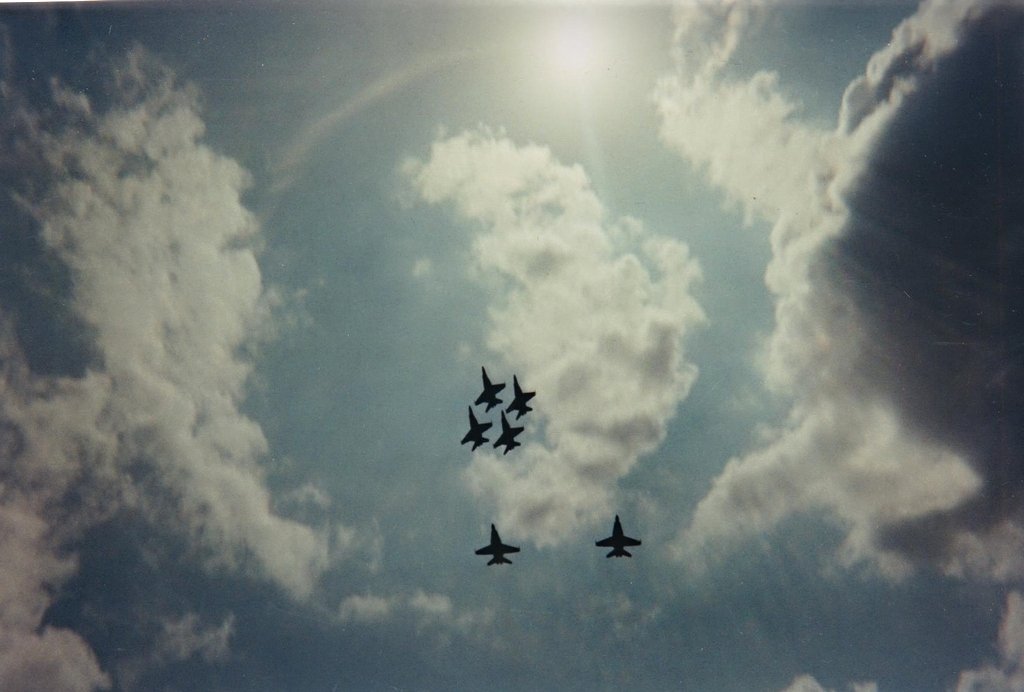
Welcome to Part II of Up Close and Personal at MacDill. I've lived near Tampa, FL for the past 16 years and have had the opportunity to attend the MacDill Airfest several times. Through the years, I've compiled many snapshots of the aircraft at the event and am here to share them with Steemians, military enthusiasts, and people who enjoy aircraft from several decades.
Yet again, there are some planes that I have been able to label and others that are unidentified (UFO's in my catalogs LOL). I've numbered those UFO's and encourage anyone that can help identify them to comment with the make, model, etc. so that I can update this post with the correct information. And of course, credit is given to those contributors.
I'm also including some in-flight photos, I just love seeing the planes flying overhead in formation and listening for the Boom as they fly through. One of these days I would like to buy a professional camera and catch these guys in even clearer detail.
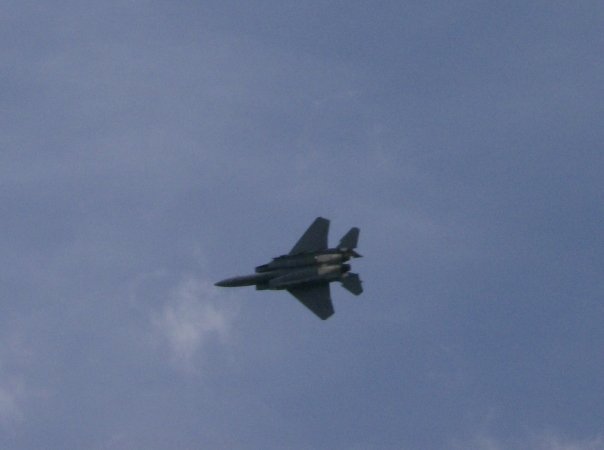
Many air shows have semi-professional and amatuer flight shows, MacDill keeps it professional. The pilots flying tricks and formations are military, this is what they have trained many hours for. Unfortunately some of these smaller shows end in disaster when planes crash, but I have yet to experience that at MacDill. There are also personally owned aircraft on display as well as participating in the flight portion of the show. There are training exercises performed each year to ensure the safety of everyone involved. This year's training involved an actual crash.
If you would like more information about the annual MacDill Airfest, visit here. The 2017 dates are not released as of yet but it is typically in March of each year.
P-51 Mustang
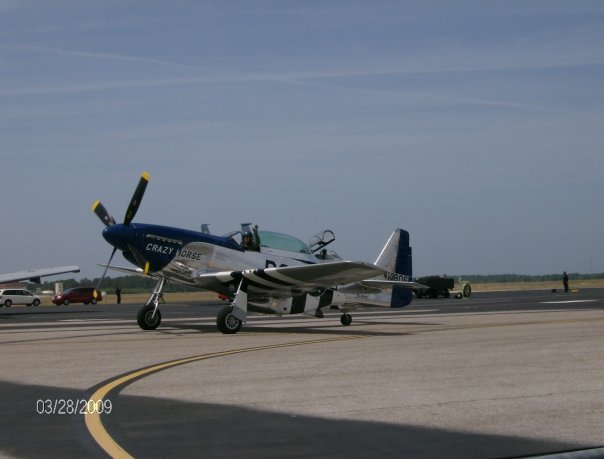
"Crazy Horse" appeared in the 2009 Airfest, piloted by Lee Lauderback. Boasting six 50 caliber machine guns, this single seater fighter was used during several wars and conflicts including WWII and the Korean War.
More information on the P-51 Mustang's history
Specs
P-3 Orion
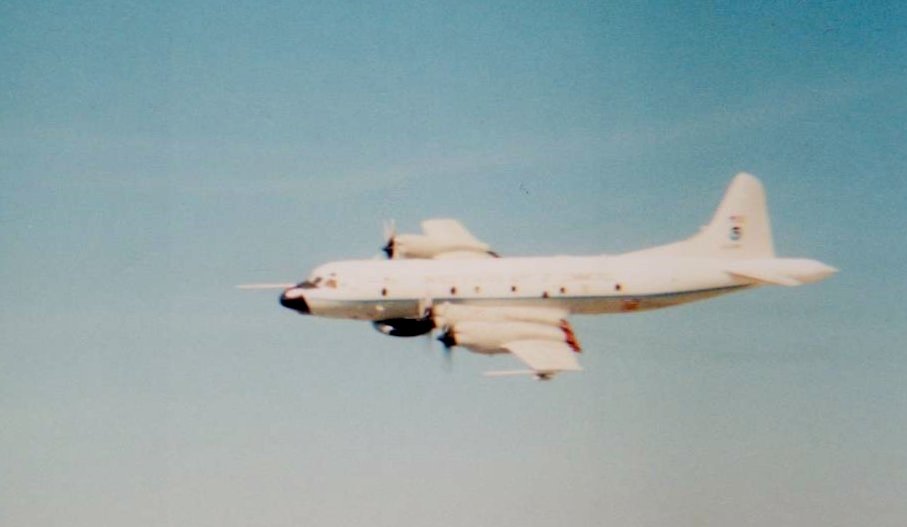
This is one of those times I wish I had a camera with a faster shutter speed! This guy was so close, we could feel the wind. The P-3 Orion was developed in 1959 by Lockheed for the US Navy. Since the 1960s, the Orion has been the Navy's primary landbased maritime patrol aircraft.
P-3 Orion Research Group - Private initiative of enthusiasts http://www.p3orion.nl/
Unidentified #1
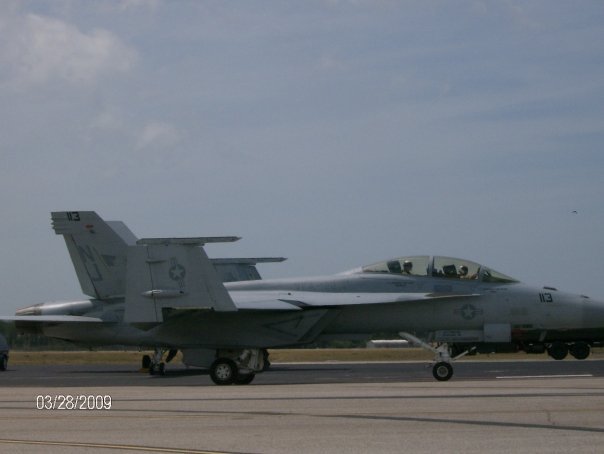
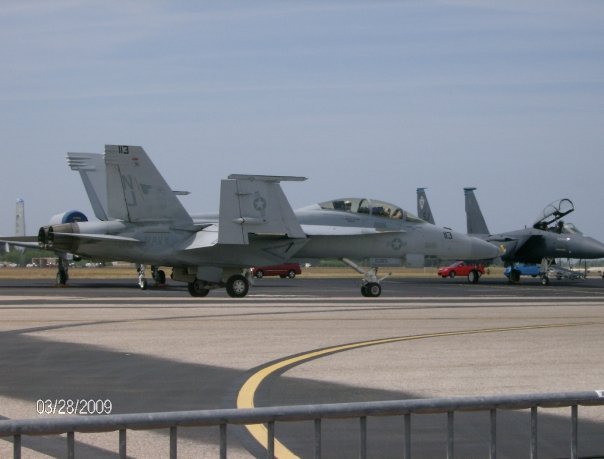
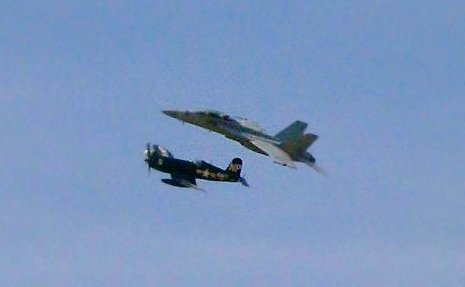
At different points during the show, the private pilots collaberate to provide a special show for the guests. Sometimes each is from a different decade, allowing us to see the progression of technology side by side.
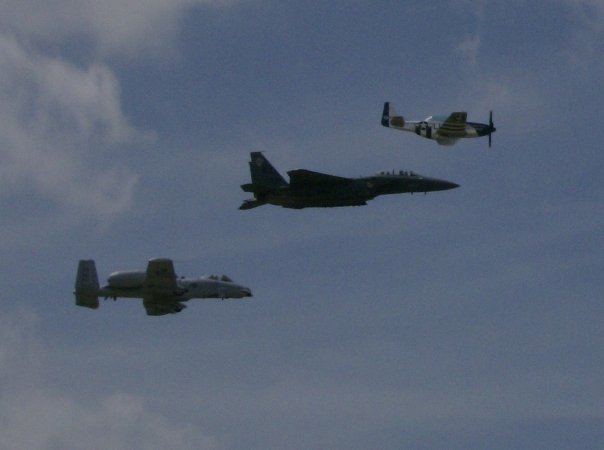
T-38 Talon
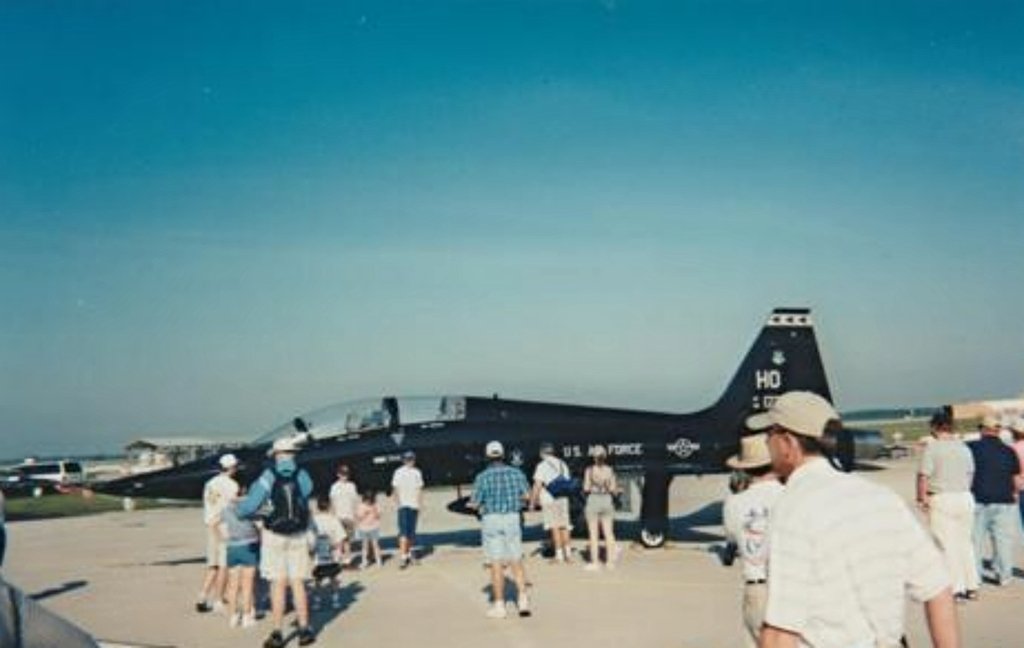
Obviously a favorite of guests, the T-38 Talon is the world's first supersonic trainer, used by more than 60,000 USAF pilots since it entered service in 1961. More info
Unidentified #2
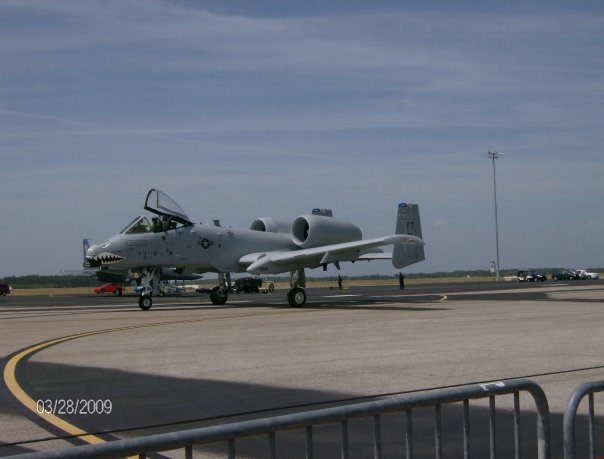
F-16 Falcon
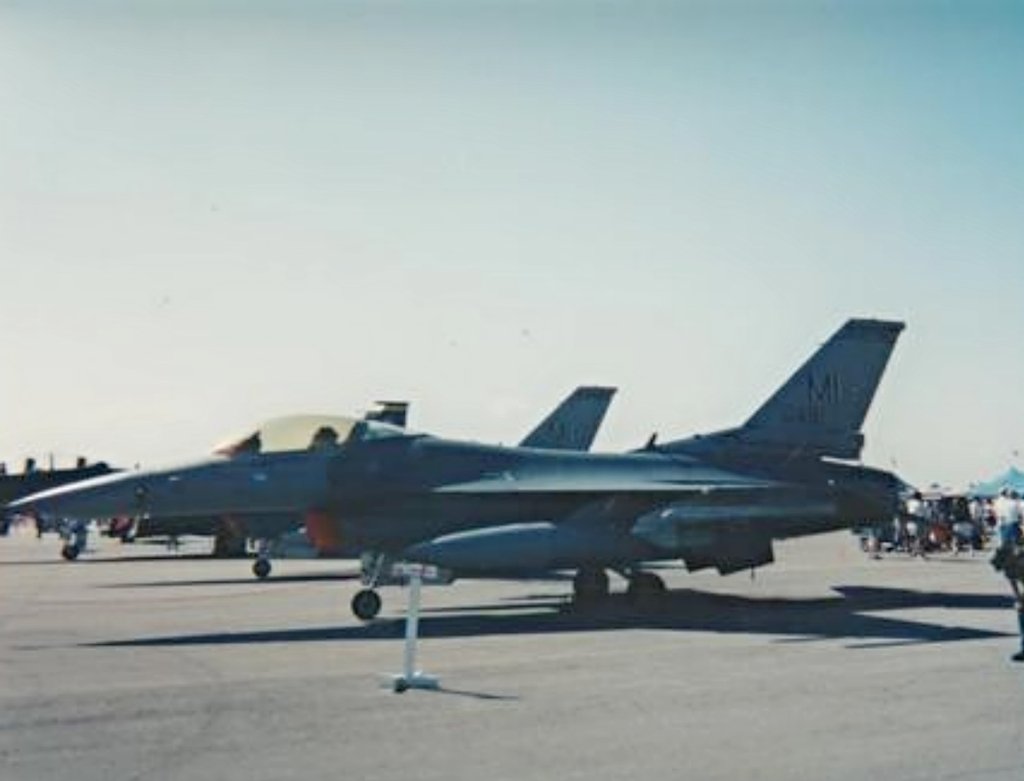
Manufactured by Lockheed in the early 1970s, there are actually two versions of the Falcon - F16A which is a single seater and F16B which is a two seater.
The F-16A, a single-seat model, first flew in December 1976. The first operational F-16A was delivered in January 1979 to the 388th Tactical Fighter Wing at Hill Air Force Base, Utah.
The F-16B, a two-seat model, has tandem cockpits that are about the same size as the one in the A model. Its bubble canopy extends to cover the second cockpit. To make room for the second cockpit, the forward fuselage fuel tank and avionics growth space were reduced. During training, the forward cockpit is used by a student pilot with an instructor pilot in the rear cockpit.
source
Unidentified #3
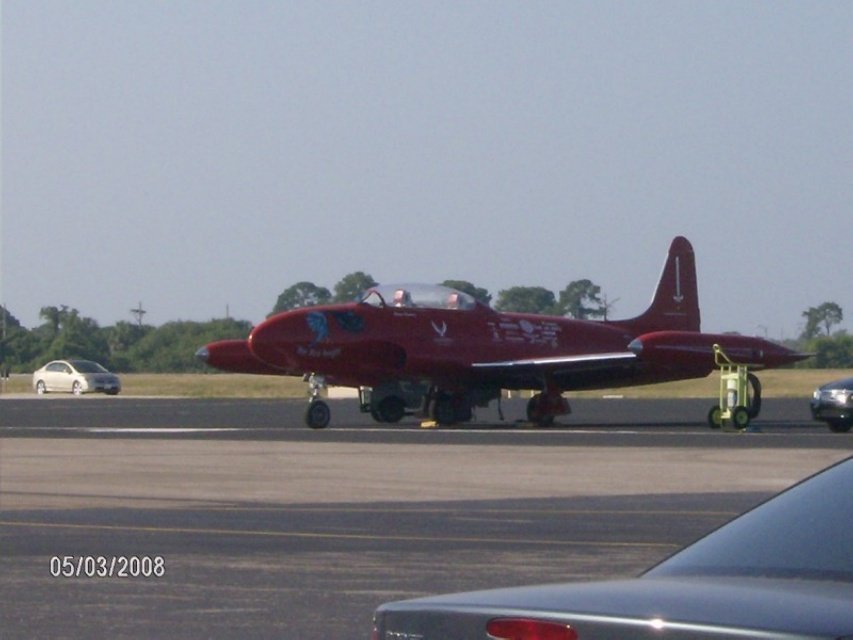
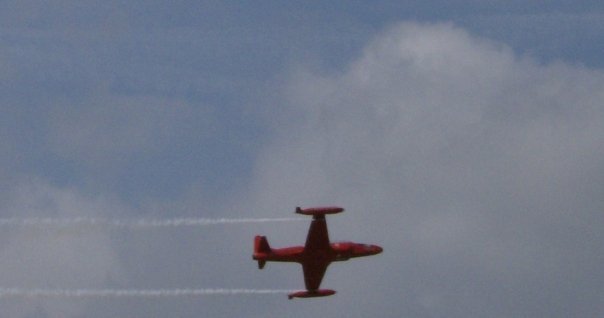

Starfighters

The Starfighters are the World's only supersonic, civilian jet demonstration team. They fly and maintain the only flying examples of the Lockheed F-104 Starfighter. The team's signature blue and white F-104s showcase low level, high speed, aerobatic maneuvers and precision formation flying throughout each show.
source
F-86F Sabre
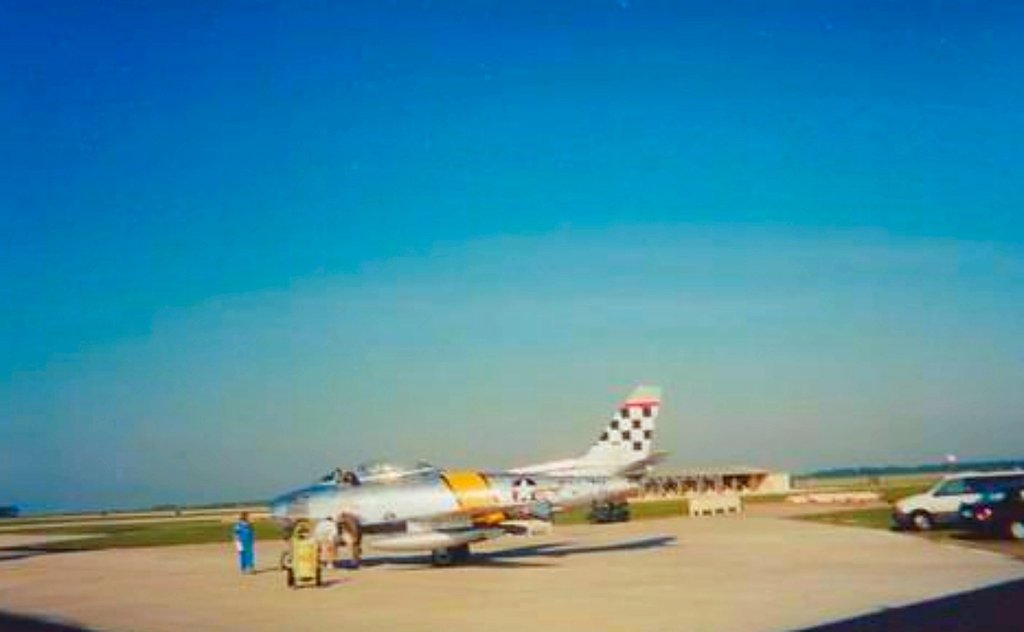
During the Korean War, the first swept-wing fighter earned its worth against the Russian MiG-15s as well as setting world speed records.
There were several models of Sabres produced by Boeing, each with slightly different specs and abilities:
Four models of the craft (F-86A, E, F and H) were day fighters or fighter bombers, while the F-86D, K and L versions were all-weather interceptors.
The three interceptor versions sported black radome noses, replacing the yawning jet intakes of the other models. The K model, manufactured in Turin, Italy, by Fiat, was flown by NATO forces. The F-86L had added equipment for use in conjunction with the U.S. Semi-Automatic Ground Environment (SAGE) defense system.
source
F/A 18 Hornet

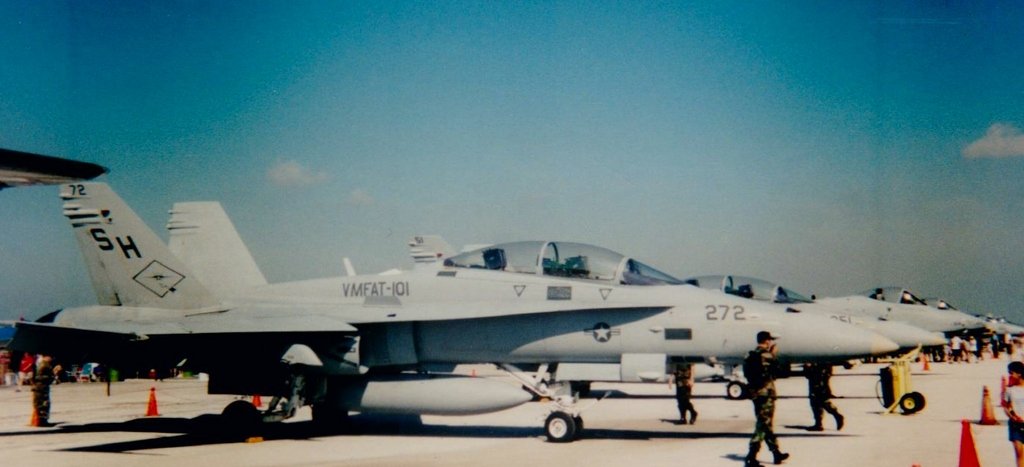
The Hornet first flew in 1978, the year I was born which is probably why I am partial to this design. The Super Hornet followed in flight 17 years later in 1995. Designed as both a fighter and attack plane, McDonnell Douglas manufactured this multirole jet for the US Navy. It replaced F-4 Phantom II fighter and A-7 Corsair II light attack jet, and also replaced the A-6 Intruder during the 1990s when they were retired. source
This video is lengthy but a great piece on the Hornet and their pilots, from training to action

Hope you enjoyed today's installment of Up Close and Personal At MacDill. As I organize more of my photographs, I will be posting articles for Part III and possibly Part IV. Next up will be the jumpers and equipment that aren't quite airplanes. I've found additional static and in-flight photos that I will be including.
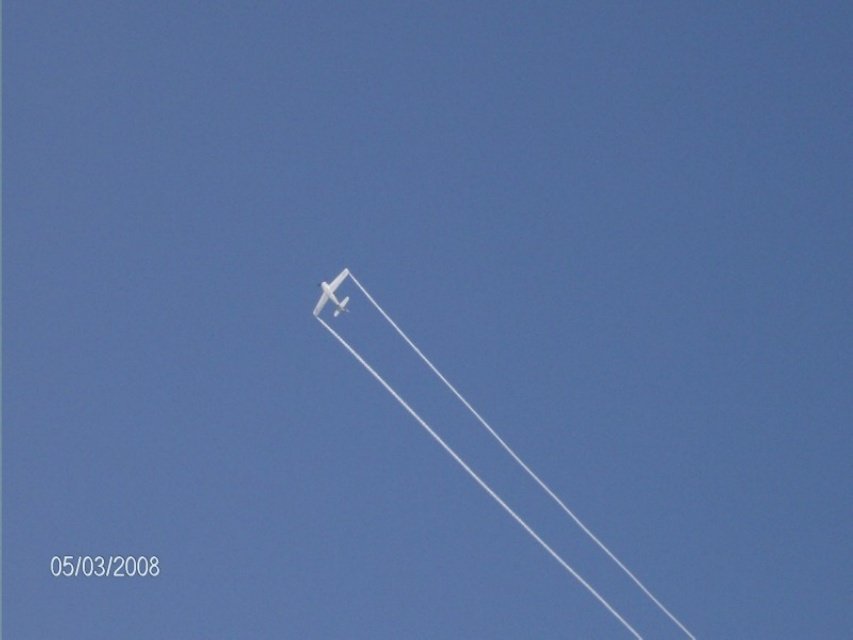
If you missed Part I of Military Aircraft, Up Close and Personal at MacDill, you can find it here
Stay tuned and follow me @jessica-miller for the next installments!
